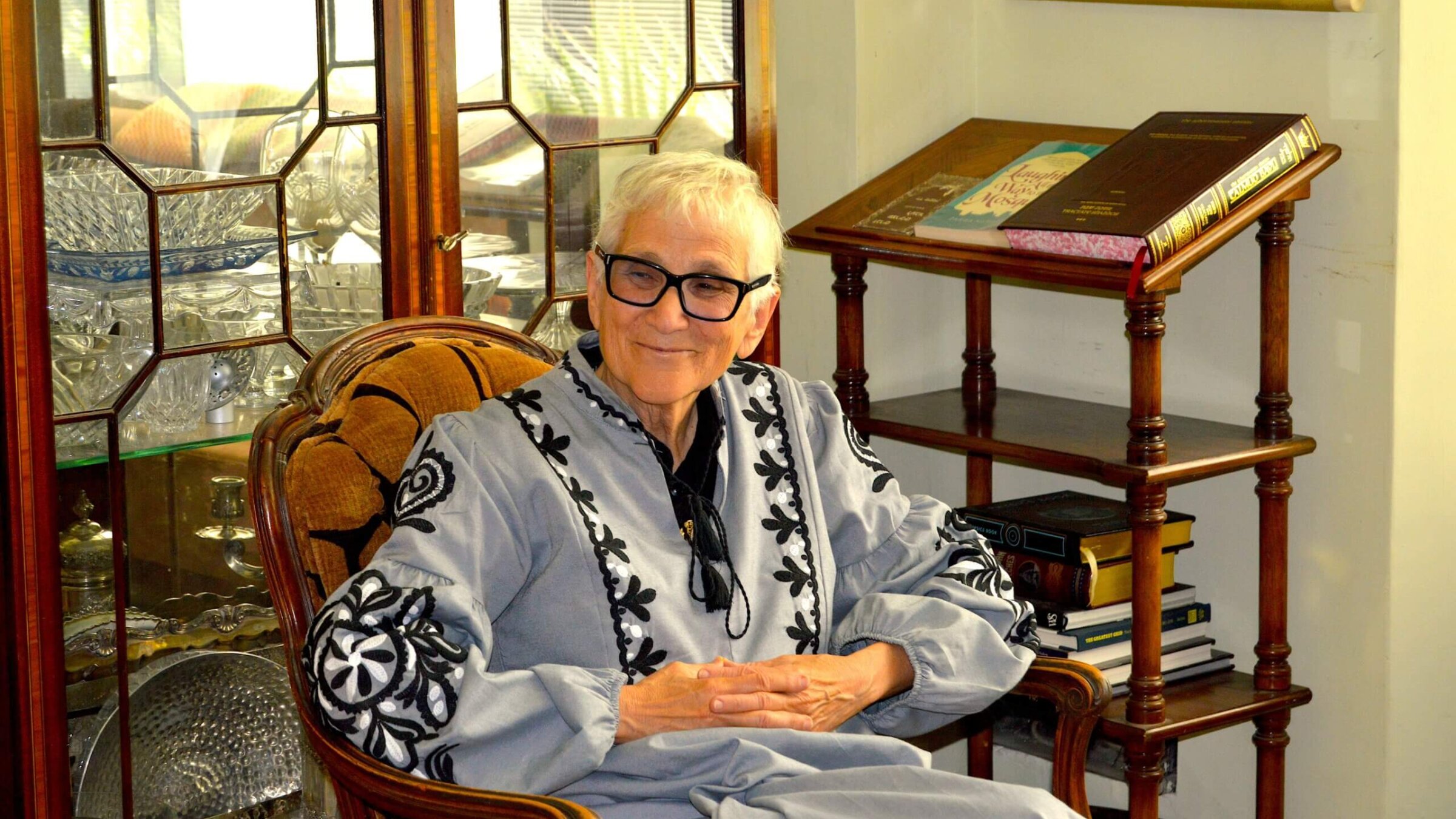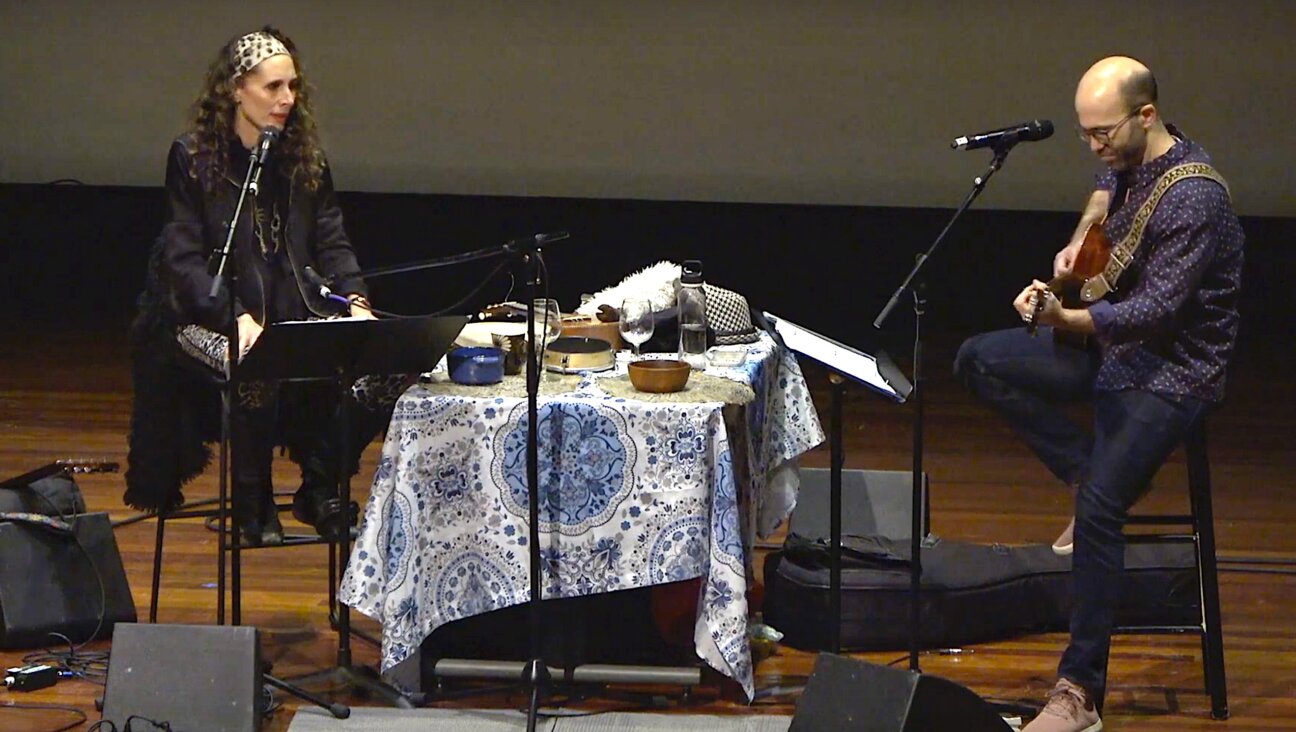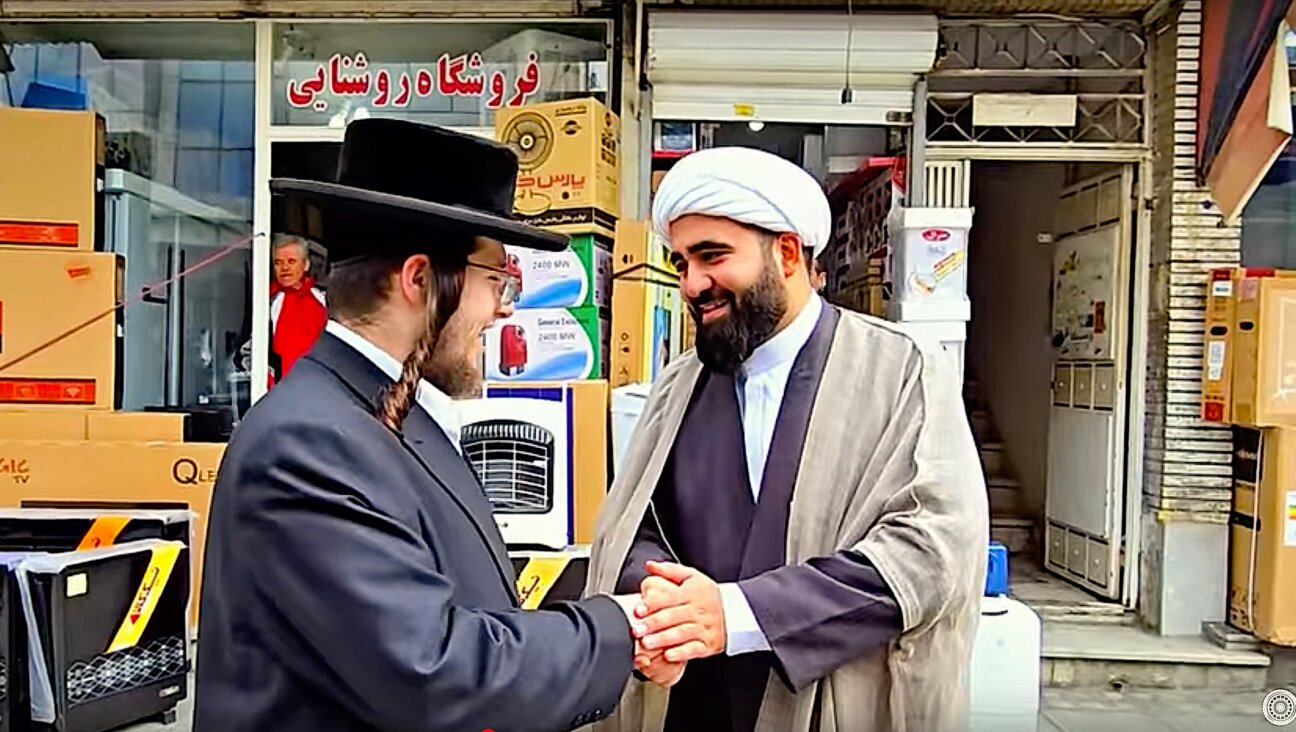Zelda Kahan Newman, translator of Yiddish women’s poetry, has died
In addition to her books on renowned women poets, she wrote linguistic papers on contemporary Hasidic Yiddish

Courtesy of Ariella Bernstein
Zelda Kahan Newman, a renowned translator of Yiddish women’s poetry and a Yiddish linguist, passed away in Hadassah Hospital in Jerusalem on Nov. 16 at age 77.
She is survived by her husband David; her children, Moshe, Yehuda, and Yehudit; her grandsons Yair, Yonatan and Eitan, and her sister Deena Kahan Bernstein.
Newman published several books related to prominent women poets. In 2016, The Thirteenth Hour was published by Ben Yehuda Press. The book is a bilingual (Yiddish and English) edition of poetry written by Lithuanian-born Holocaust survivor Rivka Basman Ben-Hayim and translated by Newman. Basman Ben-Hayim, who lived in Herzliya, was a close friend of hers until she died last March.
“I felt I was in mourning when Rivka died,” Newman wrote in a eulogy to her. “I loved her like I loved my own mother.” Soon after, Newman wrote a poignant essay suggesting the tragic reason the poet never had any children.
That same year Newman was invited to speak about The Thirteenth Hour at an event in the United States Library of Congress. The video below provides a sample of the deep knowledge and passion that always characterized Newman’s lectures.
In 2018, Academica Press published Newman’s book Kadya Molodowsky: The Life Of A Jewish Woman Writer which includes the prolific writer’s lesser known poems, plays, novella and a novel. The volume also reveals previously unknown facts about Molodowsky’s relationship with her husband and father as well as her feminine persona.
“Zelda was the most caring contrarian I knew,” said her niece, Ariella Bernstein, who lives in Jerusalem. “She always tried to learn everything she didn’t understand and retain everything she knew until her dying day.”
Bernstein added that her aunt was determined to fight injustice where she saw it and stood up for women’s rights at a time when it was quite unpopular. In fact, Newman was a founder of the Be’er Sheva Maslan, a local shelter for victims of domestic abuse. She was also in the first graduating class of yoetzot halacha — women certified to serve as advisors regarding Jewish practices, particularly regarding questions about menstruation.
Professionally, Newman had a special interest in researching linguistic aspects of the Yiddish language. Among her most important papers in the field were one on the influence of talmudic chant on Yiddish intonation patterns and another on innovations in contemporary spoken Hasidic Yiddish.
Zelda Kahan Newman was born in New York in 1946. Her American-born mother, Pearl (Chaya Peryl), was a teacher and her father, Yehuda, who had received semicha (Orthodox rabbinic ordination) from Sighet, Romania before the war, worked in the garment business.
Newman attended the Hebrew Institute of Long Island and received a doctorate in linguistics from the University of Michigan.
In January 1973 she married David, whom she had known since first grade. She made aliyah that same year, before the outbreak of the Yom Kippur war, while he finished dental school in the States. They then settled in Be’er sheva. For many years she gave courses at Ben Gurion University in Be’er Sheva.
From 2004 till 2014, Newman lived in Riverdale, New York where she was a Hebraic and Judaic Studies professor at the City University of New York’s Lehman College. But throughout her stay in the United States, she often mentioned how much she missed Israel. As soon as she retired, she returned to her home in Be’er Sheva.
“She was a passionate Zionist and cared deeply about the State of Israel,” Bernstein said.























